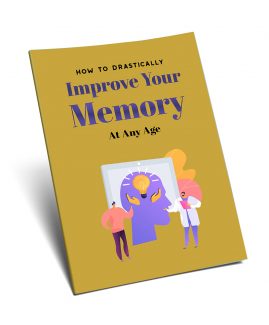
 License Type: Private Label Rights
License Type: Private Label Rights  File Type: ZIP
File Type: ZIP
 SKU: 65113
SKU: 65113  Shipping: Online Download
Shipping: Online Download
Sample Content Preview
Introduction
Improving your memory is one of the most important things you can do to improve your overall cognitive function and well-being. According to a study published in the journal “Current Neurology and Neuroscience Reports,” people with better Memory Function Status (MFS) have a reduced risk of developing Alzheimer’s Disease and other forms of dementia.
The study surveyed over 1,500 people who participated in the Third National Health and Nutrition Examination Survey, conducted between 1988 and 1994. Participants were assessed on their Memory Function Status (MFS) using the Birnbaum Memory Scale and the Alzheimer’s Disease Evaluation Scale-Cognitive (ADES-Cog).
The study showed that people with an MFS score of at least 30 had a 64% reduced risk of developing Alzheimer’s Disease or any form of dementia. People with an MFS score of 18 had a 33% reduced risk of developing Alzheimer’s Disease or any form of dementia. The point is that improving your memory is extremely valuable.
There is a lot of information about improving your memory, but it can be hard to figure out which technique is right for you. This report provides plenty of information about improving memory at any age.
What are the most common causes of poor memory?
How do we remember things? Memory is essential for daily life. We use it to remember what we ate for breakfast, what we plan to do for the day and our favorite songs. But how do we remember all of the information we encounter every day?
Many people don’t know that there are many different types of memory, each with its strengths and weaknesses. Short-term memory is the type of memory that is responsible for recalling a few items we have just seen or heard. It can hold around three items at a time and only last for around fifteen minutes. Long-term memory is the type of memory responsible for recalling information we have seen or heard in the past. It can hold information for longer periods of time, but it may not be as accessible as short-term memory.
Therefore, there are several different causes of poor memory. Some of them are natural, while others are due to the environment and lifestyle we lead. Some of the most common causes of poor memory are:
1. Age
Age is a common cause of poor memory. According to the "Journal of the American Medical Association," as people age, the cognitive faculties, including short-term memory, focus and attention, and working memory decline.
The trouble begins as early as 40 for some people and can worsen significantly after the mid-70s. This is because as people age, the brain's natural production of antioxidant enzymes decreases, which could lead to poor memory function.
Oxidative stress is a well-known contributor to the development of age-related diseases like Alzheimer's, so it's important to maintain good cognitive health as you age.
While no single age is free from these problems, the elderly are especially prone to them. This is because the elderly are generally more fragile and have a greater number of health problems than younger people. These conditions can contribute to memory problems by making it harder for a person to focus and remember.
- License: Private Label Rights
- Category:Ebooks
- Tags:2023 Ebooks Private Label Rights







